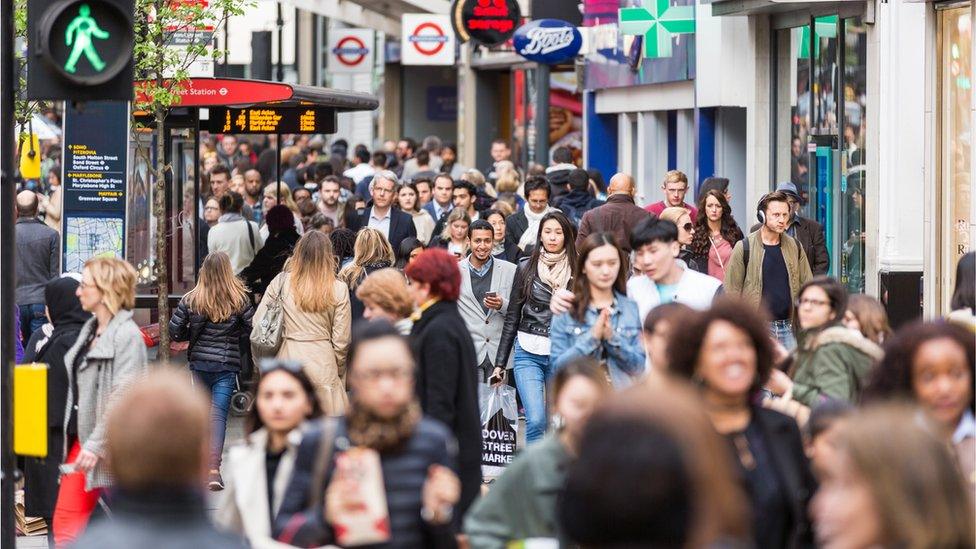Ruling expected in women's state pension age case
- Published
"It makes me angry. It makes me very emotional"
Campaigners will learn later whether the government's handling of the rise in women's state pension age discriminated against them.
The retirement age for women rose from 60 to 65, in line with men, and will go up to 66 by 2020, and to 67 by 2028.
Women born in the 1950s claim the rise is unfair because they were not given enough time to make adjustments to cope with years without a state pension.
They won the right to a judicial review, with judges ruling later.
Up until 2010, women received their state pensions at the age of 60 but that has been rising since then. While most campaigners support pension age equality, they say the government was discriminatory in the way it has introduced it.

In June, the judicial review in the High Court heard a claim from two members of the Backto60 group who said that not receiving their state pension at the age of 60 had affected them disproportionately.
They argue that many women took time out of work to care for children and were paid less than men, could not save as much in occupational pensions, so the change had hit them harder.
It is estimated that 3.8 million women were in this position, with some potentially losing out on more than £40,000.
The Backto60 group is seeking repayment of all the pensions people born in the 1950s would have received if they had been able to retire earlier. It argues that the speed of the change and what it calls the lack of warnings has disadvantaged millions of women.
However, the government has estimated that a reversal of the pension changes in the Acts of Parliament of 1995 and 2011 would cost £215bn over the period 2010-11 to 2025-26.
About £181bn of that would be money potentially owed to women and the rest to men.
It has said the move to make the state pension age the same for men and women was a "long-overdue" move towards gender equality, and had been clearly communicated to those affected.
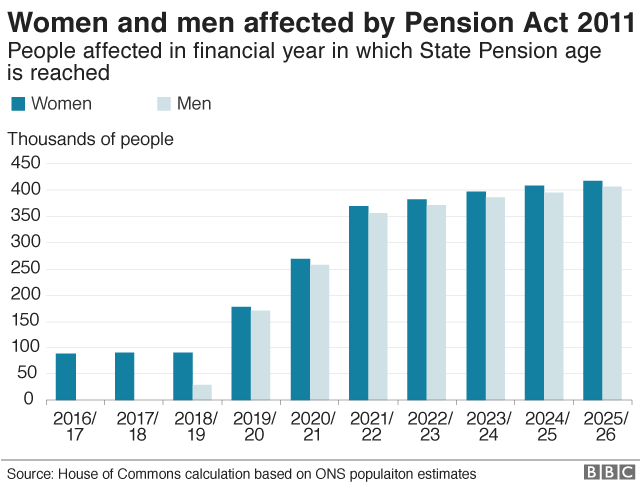
The losing side of Thursday's judgement is likely to appeal, meaning more court cases in a long-running dispute over the effect of the pension changes on 1950s women.
Campaigners have lobbied MPs, and call regular public protests to raise awareness of their situation.
The Backto60 group has taken this legal action to demand "the return of their earned dues". The separate Women Against State Pension Inequality (Waspi) group is calling for a "bridging" pension to cover the gap from the age of 60 until their state pension is paid.

'I could have paid my bills'
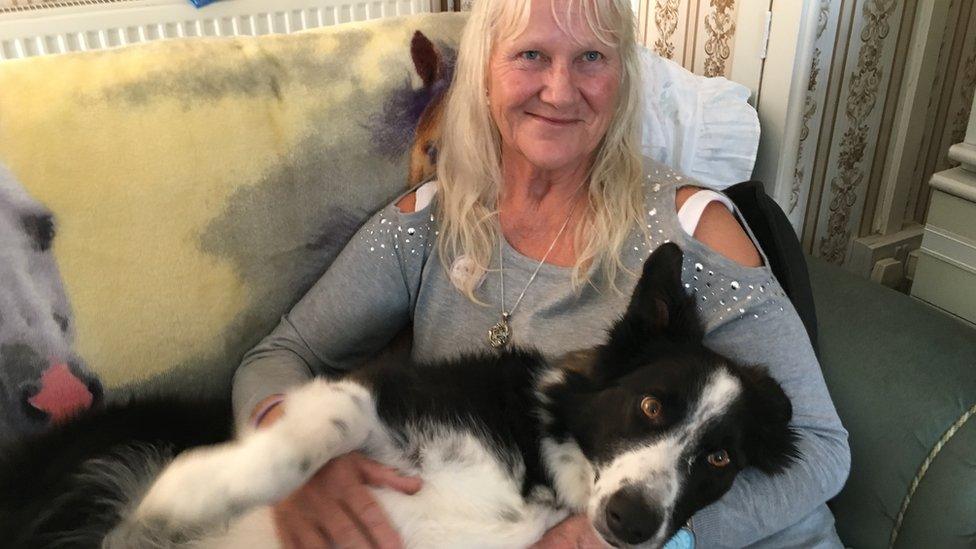
Krissy Abbott, with her dog Jazz, says she is angry about the situation
Krissy Abbott was born in April 1954 so had expected to be receiving her state pension well before now. Instead, it will come in November.
Mrs Abbott, from Essex, said the loss of her husband, Alan, as well as difficulties with benefits applications meant she was depending on the charity of others last year.
"The only thing I had was the food bank and some very good neighbours of mine. They knew how much I thought of [my dog] Jazz. They brought round tins of dog food for him," she said.
"I had a gas cooker in the kitchen and Jazz and I used to spend our time in the kitchen keeping warm. You just survive."
She said life would have been different had she been in receipt of her state pension.
"You could have had the heating, you could have had hot food, a shower, a bath, a simple thing like having a kettle and making a hot drink. It would have made such a difference. I could have paid my bills," she said.
"It makes me angry. It makes me very emotional."
- Published30 November 2018
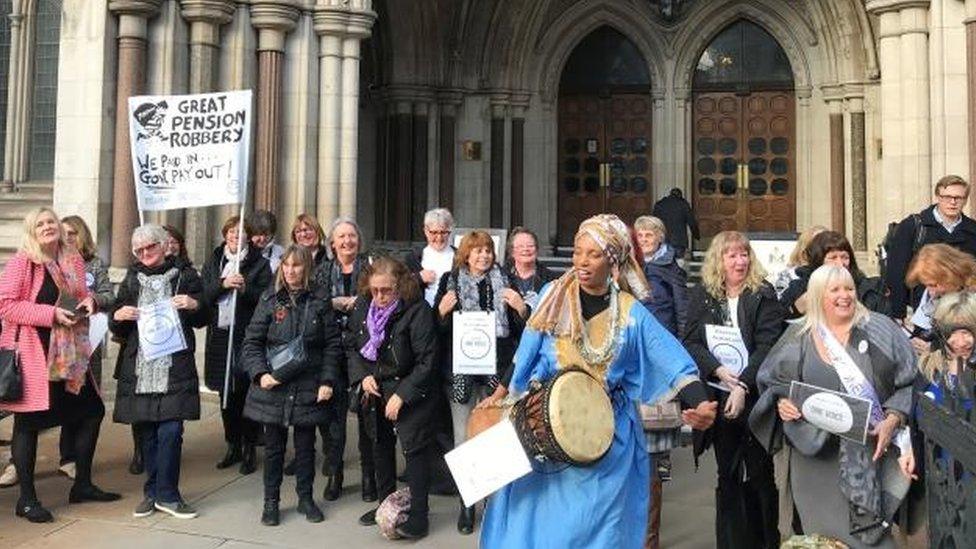
- Published5 November 2018
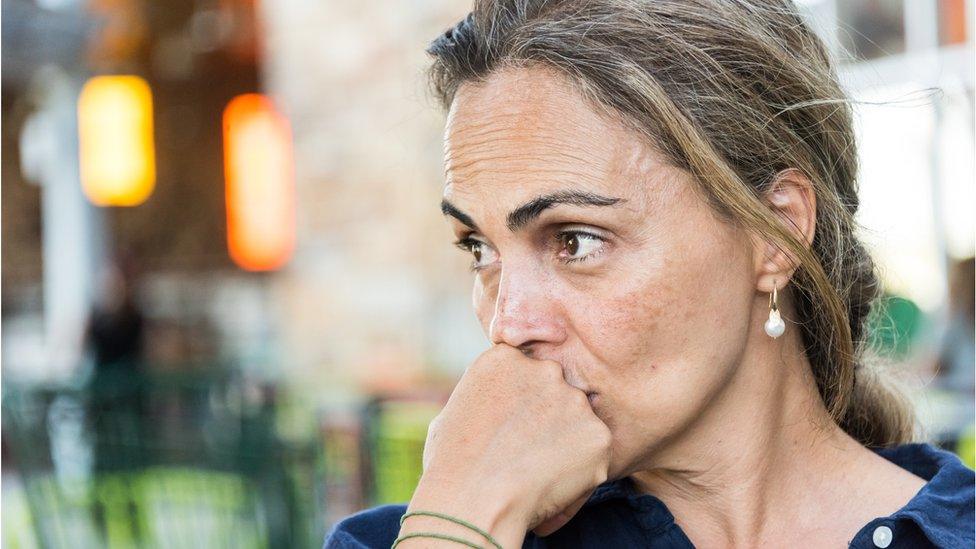
- Published30 May 2017
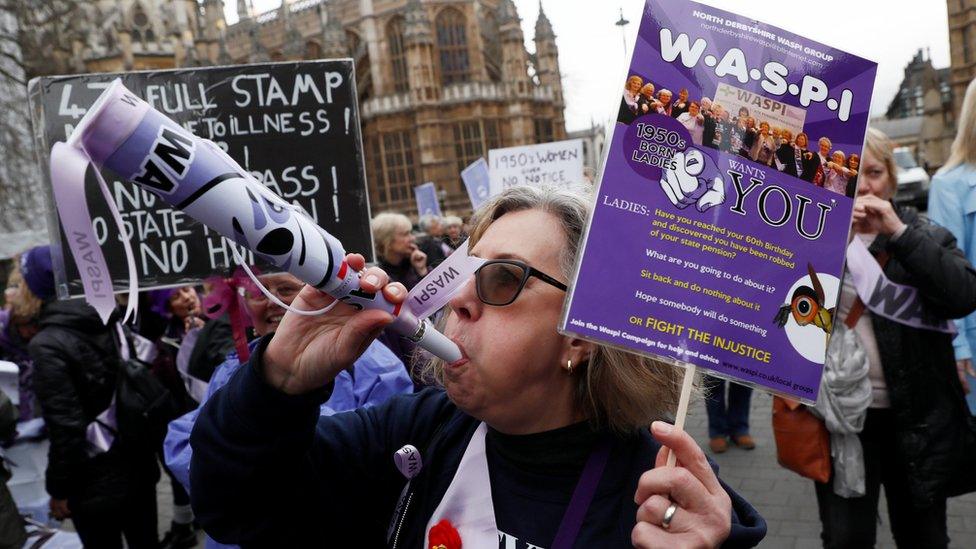
- Published19 July 2017
